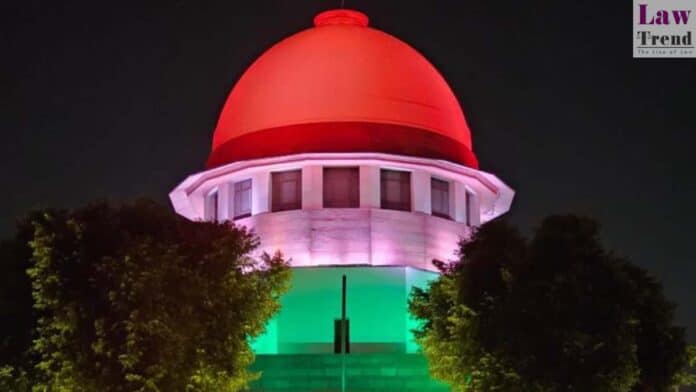The Supreme Court has closed the proceedings in two separate petitions that raised issues concerning lumpy skin disease in cattle, noting the various steps taken by the states including for the vaccination of cows and other animals and for preventing the spread of the ailment.
Lumpy skin disease is a contagious viral infection that affects cattle, causing fever and nodules on the skin, and can also lead to death. The disease spreads through mosquitoes, flies, lice and wasps by direct contact among cattle and through contaminated food and water.
The apex court expressed satisfaction over the steps taken by authorities and said these proceedings can be closed as of now while leaving it open to the petitioners to approach the Centre or the state governments as and when required to address the related issues.
A bench of justices Surya Kant and Dipankar Datta noted the steps taken by the states are broadly regarding the timely treatment of infected cows, preventing the spread of lumpy skin disease virus, vaccination of cows and other animals and disinfection of urinal areas.
It also noted the steps like minimum transportation of animals and peremptory health checkups of those animals coming from other states, setting up of test laboratories and substantial increase in securing clinical samples and also about the constitution of animal welfare boards or committees to give effect to the guidelines and policy circulars issued by the Centre.
“In light of these steps, we are satisfied that these proceedings can be closed as of now while leaving it open for the petitioner(s) to approach the central/state governments as and when required to address any related issue(s),” the bench said in its order passed on November 20.
“We have no reason to doubt that the state governments will take prompt action and give serious consideration to the issues that may be raised by the petitioner(s) in the future,” it said.
The bench was hearing two separate petitions, including the one filed by a social and animal activist who had sought a direction to the Centre and others to pass a law for the protection of cattle and saving them from lumpy skin disease.
The top court said it had in October last year issued notice to the respondents on the plea for the limited purpose of finding out whether the Centre has formulated a national health plan to prevent and cure the lumpy skin disease virus epidemic amongst cows and other cattle.
“Both the Union of India and the Animal Welfare Board of India, in their counter-affidavits, have taken the stand that the matter in issue falls within the ambit of the states. It is further stated that they have issued guidelines and policy circulars from time to time, whereunder around 8.16 crore cattle have since been vaccinated,” it said.
The bench noted that the states of Rajasthan, Maharashtra, Madhya Pradesh, Gujarat, Haryana, Punjab and the Delhi government have also filed their respective counter-affidavits, explaining the steps taken by them to prevent the spread of disease among the cows and allocation of funds made by them for cattle vaccination.
“It is apparent from the counter-affidavits that the budgetary allocation and the consequential expenditure incurred vary from state to state depending upon the total population of the cattle and the financial condition of that state,” it said while disposing of both the pleas.
On the further expansion of these proceedings, as sought by the petitioners, concerning the formulation of policies for sustainable programs for indigenous cows as compared to crossbreeds and exotic breeds and others, the court granted them liberty to submit a comprehensive representation in this regard to the Centre for taking an appropriate policy decision within a reasonable time.




